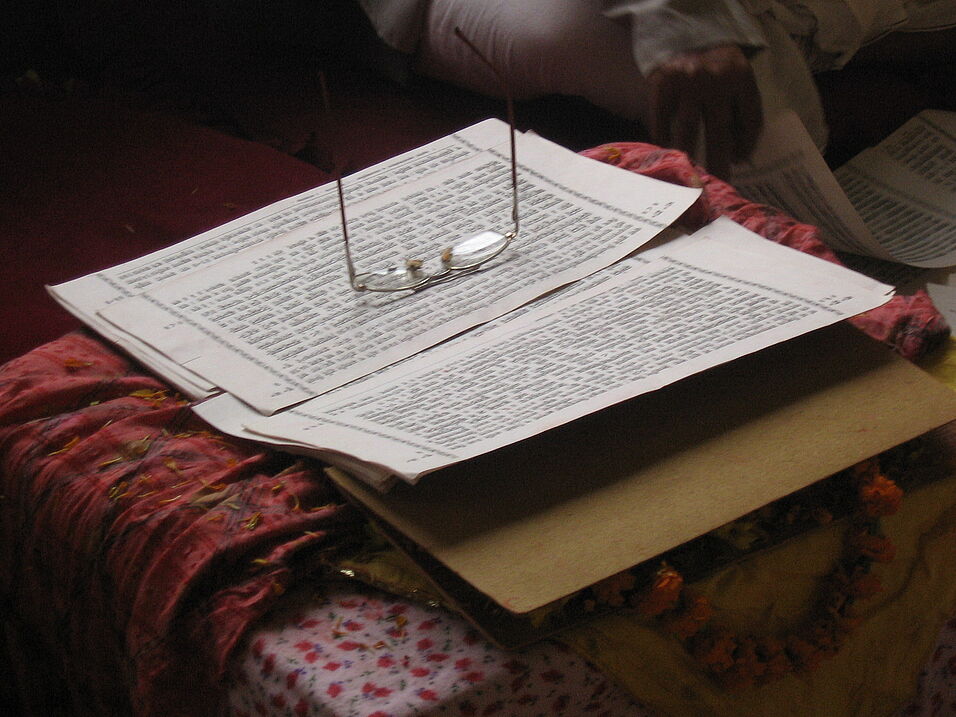In South Asia, a large number of rich textual traditions were generated over the centuries. Representing a wide range of genres and languages, many of these traditions continue today. In the late 18th century, mechanical printing of texts spread in South Asia as a result of colonial rule and was soon adapted for different Indian scripts. The new technology was used to reproduce textual traditions of many different languages, from Sanskrit to Tamil, enhancing their circulation and enabling new genres and types of publications in modern South Asian languages to emerge.
The symposium will focus on the period in South Asia from the 19th century to the present, whereby it will explore two interrelated matters. First, it will examine the shift in South Asia from a manuscript culture to a print culture, including more recent developments of digital culture. Secondly, it will explore how systematic collections of texts formed in this period, such as collections of manuscripts or texts in digital format, and in places as diverse as Bengal and Nepal, or Andhra Pradesh and Tamil Nadu.
We will discuss aspects of continuity and transformation within the many intellectual and technical practices relevant to text and book production. This will include examining how changes in book production and the accessibility of texts have affected traditional scholarship as well as the oral performance and transmission of texts. Other related questions involve the reception, preservation and transmission of both material culture and knowledge systems in connection with the standardization of modern South Asian languages such as Hindi, Nepali, Telugu and Tamil.
The symposium will bring together international scholars whose research is based on diverse methodologies and focuses on different regions and languages of South Asia. Their contributions will shed light on different aspects of the cultural history of South Asia and display not only the complexity of the latter, but also the challenges that it poses to its interpreters.
For further details, please see the symposium's website.
Organization
Johanna Buß, Alaka Chudal, Cristina Pecchia
Participants
- Jessica Vantine Birkenholtz (University of Illinois, Urbana-Champaign)
- Johanna Buß (University of Vienna)
- Alaka Chudal (University of Vienna)
- Divyaraj Amiya (University of Tübingen)
- Heiko Frese (Heidelberg University)
- Martin Gaenszle (University of Vienna)
- Alessandro Graheli (Austrian Academy of Sciences and University of Vienna)
- Hans Harder (Heidelberg University)
- Ulrich Timme Kragh (Adam Mickiewicz University, Poznan)
- Borayin Larios (Heidelberg University / CNRS-CEIAS, Paris)
- Cristina Pecchia (Austrian Academy of Sciences)
- Ulrike Stark (University of Chicago)
- A.R. Venkatachalapathy (Madras Institute of Development Studies, Chennai)
Kindly register your participation by 12 September 2018 with an email to cristina.pecchia@oeaw.ac.at.

